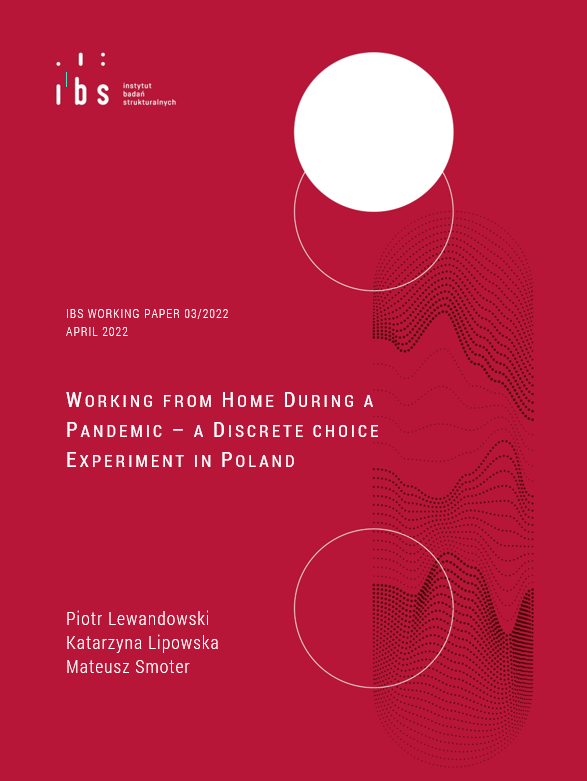The COVID-19 pandemic has transformed working from home from a rarity to a widely adopted job amenity. We study workers’ willingness to pay for working from home, and how it may be affected by subjective and objective assessments of COVID-19-related risks. We conducted a discrete choice experiment with more than 10,000 workers in Poland. We randomised wage differences between otherwise identical home- and office-based jobs. We also randomised an information provision treatment in which we informed 50% of workers about the level of exposure to contagion in their occupation, and how it may be reduced by working from home. We found that the demand for working from home was substantial – the majority of participants would prefer to work from home if they were offered the same wage for a home-based job as they would earn in an office-based job. On average, workers would sacrifice 5.1% of their earnings for the option to work from home, especially for 2-3 days a week (7.3%) rather than 5 days a week (2.8%). We also found that the perception of COVID-19 mattered, as workers who perceived it as a threat were willing to give up a much higher share of their earnings than those who did not. However, the willingness to pay did not differ significantly between individuals depending on whether their occupation had a high or a low level of exposure, or between individuals treated in the information experiment and those in the control group.

This paper uses Statistics’ Poland Labour Force Survey data. Statistics Poland has no responsibility for the results and the conclusions, which are those of the authors.

